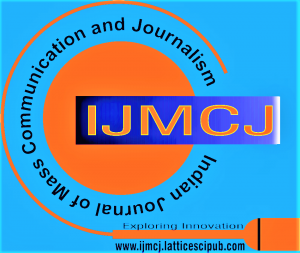![]()
Digital Misogyny Unveiled: An Examination of Online Hate Speech Targeting Women in Bangladesh
Fatema Samina Yasmin
Fatema Samina Yasmin, Associate Professor, Department of Political Science, University of Dhaka, Dhaka-1000, Bangladesh.
Manuscript received on 16 November 2023 | Revised Manuscript received on 02 December 2023 | Manuscript Accepted on 15 December 2023 | Manuscript published on. 30 December 2023 | PP: 14-25 | Volume-3 Issue-2, December 2023 | Retrieval Number: 100.1/ijmcj.B1062123223 | DOI:10.54105/ijmcj.B1062.123223
Open Access | Ethics and Policies | Cite | Zenodo | Indexing and Abstracting
© The Authors. Published by Lattice Science Publication (LSP). This is an open-access article under the CC-BY-NC-ND license (http://creativecommons.org/licenses/by-nc-nd/4.0/)
Abstract: Discriminatory and sexist language expresses bias towards men and projects that women are inferior around the world. It is also evident in the patriarchal society of Bangladesh. While they are often prevalent subtly in communication taking place in person, the anonymous nature of the internet has enabled people to be vile towards women in the virtual world. Online hate speech and misogynistic behavior have become pervasive issues in today’s digital landscape. Most people take Islamic verses literally or believe the words of religious clerics without verifying their authenticity. The socio-religious idea of women being subservient to men produces numerous hate speeches against women on social media platforms. The presence of multiple online religious lectures spewing offensive words against women made the situation worse in Bangladesh. They conform to the prevalent idea that men should control women’s agency, and for that purpose, even violence is acceptable. This article aims to provide a comprehensive analysis of the phenomenon, with a specific focus on the context of Bangladesh. Through case studies, it looks into how religiousleaders fuel online hatred towards women.It further explores the various forms, impacts, and underlying factors of misogynistic online speech. By delving into the complexities of this issue, it also discusses the challenges faced by women in seeking redress and proposesrecommendationsto mitigate online violence against women in Bangladesh.
Keywords: Digital Misogyny, Online Hate Speech, Women, Violence against Women
Scope of the Article: Social Science
